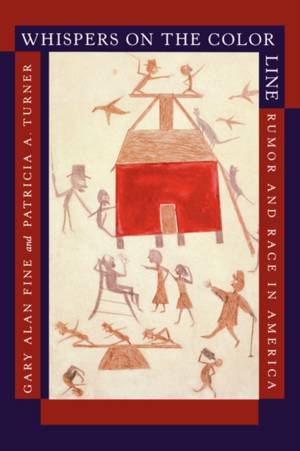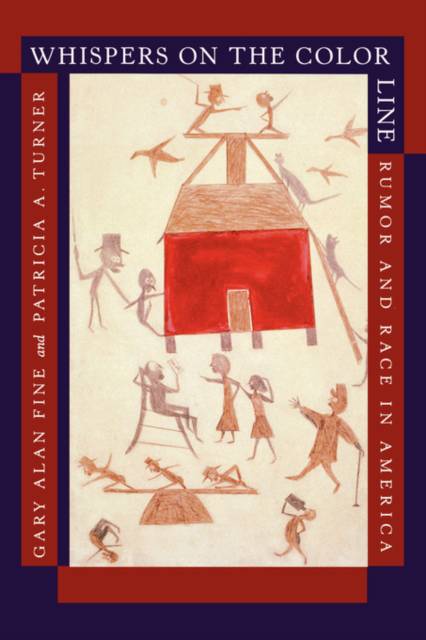
Bedankt voor het vertrouwen het afgelopen jaar! Om jou te bedanken bieden we GRATIS verzending (in België) aan op alles gedurende de hele maand januari.
- Afhalen na 1 uur in een winkel met voorraad
- In januari gratis thuislevering in België
- Ruim aanbod met 7 miljoen producten
Bedankt voor het vertrouwen het afgelopen jaar! Om jou te bedanken bieden we GRATIS verzending (in België) aan op alles gedurende de hele maand januari.
- Afhalen na 1 uur in een winkel met voorraad
- In januari gratis thuislevering in België
- Ruim aanbod met 7 miljoen producten
Zoeken
Whispers on the Color Line
Rumor and Race in America
Gary Alan Fine, Patricia A Turner
Paperback | Engels
€ 59,45
+ 118 punten
Omschrijving
Legends are arguably the most common narrative form of folklore in American society. From sex acts to business transactions, from fashion to food, from heroes to heroin, rumors and legends take on every charged topic. Children circulate texts about toys and candy; teenagers share stories about sex, drugs, and rock and roll; young professionals commiserate over the hazards of the work world. These stories address aspects of life about which we receive mixed or ambiguous messages. Given that matters relevant to race remain confused and divisive in many corridors of American society, it is not surprising that rumors and legends that reflect racial misunderstanding and mistrust frequently circulate. Whispers on the Color Line focuses on a wide array of tales told in black and white communities across America. Topics run the gamut from alleged governmental conspiracies, possible food tampering, gang violence, and the sex lives of celebrities. Such beliefs travel by word of mouth, in print, and increasingly over the Internet. In many instances these stories reflect the tenacious level of racial misunderstanding that continues to vex efforts to foster racial harmony, creating separate racialized pools of knowledge.
The authors have spent over twenty years collecting and analyzing rumors and contemporary legends--from the ever-durable Kentucky Fried Rat cycle to persistent beliefs about athletic footwear manufacturers and their support for white supremacist regimes. These implausible stories serve many purposes: they assuage anxieties, entertain friends, increase our sense of control--all without directly proclaiming our own attitudes. Fine and Turner consider how these tales reflect attitudes that blacks and whites have both about each other and about the world they face. In an engaging and penetrating narrative, they brilliantly demonstrate how--by transforming unacceptable impulses into a narrative that is claimed to have actually happened--we are able to express the inexpressible.
The authors have spent over twenty years collecting and analyzing rumors and contemporary legends--from the ever-durable Kentucky Fried Rat cycle to persistent beliefs about athletic footwear manufacturers and their support for white supremacist regimes. These implausible stories serve many purposes: they assuage anxieties, entertain friends, increase our sense of control--all without directly proclaiming our own attitudes. Fine and Turner consider how these tales reflect attitudes that blacks and whites have both about each other and about the world they face. In an engaging and penetrating narrative, they brilliantly demonstrate how--by transforming unacceptable impulses into a narrative that is claimed to have actually happened--we are able to express the inexpressible.
Specificaties
Betrokkenen
- Auteur(s):
- Uitgeverij:
Inhoud
- Aantal bladzijden:
- 260
- Taal:
- Engels
Eigenschappen
- Productcode (EAN):
- 9780520228559
- Verschijningsdatum:
- 18/05/2004
- Uitvoering:
- Paperback
- Formaat:
- Trade paperback (VS)
- Afmetingen:
- 155 mm x 229 mm
- Gewicht:
- 367 g

Alleen bij Standaard Boekhandel
+ 118 punten op je klantenkaart van Standaard Boekhandel
Beoordelingen
We publiceren alleen reviews die voldoen aan de voorwaarden voor reviews. Bekijk onze voorwaarden voor reviews.









